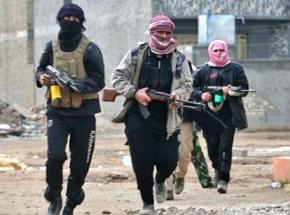What came before the terror of today?
The oppression and repression carried out by Western governments around the world creates the circumstances for horrors like the beheading of photojournalist James Foley, writes in a column for the Belfast Telegraph written before news that a second journalist, Scott Sotloff, was murdered by Islamic State in Iraq and Syria fighters.
THERE WILL be little sympathy anywhere for "Jihadi John" if he is captured or killed in the coming days. He's the man, allegedly from Maida Vale in west London, accused of beheading American journalist James Foley on August 19, in as chilling and cruel a killing as has recently been reported in any theater of conflict--even in these desperate days of violence across an expanding swathe of the world.
For most of us, the lonely agony and terrible end of a brave and decent man, who had sought to convey the suffering of all sides to a largely uncaring world, scarcely bears thinking about.
The murder brings home that this is the most dangerous time in memory for journalists, and Syria/Iraq the most dangerous place. Libya may well be descending into the same darkness.
It is by no means to excuse Foley's killing to put the event in the context of other murders since the invasion of Iraq in 2003.
In the estimates of journalists' unions and human rights groups, more than 200 media personnel have been killed in this period, the great majority of them local journalists, typically working for Western outlets (of course, the number of killings of journalists is a tiny fraction of the death toll of civilians).

Foley's murder, combined with the ethnic cleansing of the Yazidi people, has turned Western public opinion toward acceptance of armed intervention.
Few of us had heard of the Yazidi sect until those among them who had managed to evade the jihadists fled for their lives onto the side of a mountain--but we should have. "This is an act of ethnic cleansing, almost genocide," observed a military adviser to the U.S. government, referring to the bombing by affiliates of al-Qaeda, in which an estimated 800 Yazidis perished in 2007.
ISLAMIC STATE (IS) didn't exist at the time of the invasion; al-Qaeda had no presence in Iraq. The timeline, in itself, leaves little room for doubt that invasion launched by Bush and Blair on the basis of lies was a key factor in generating today's terror.
Christians lived in relative safety in Iraq and Syria prior to 2003, as did a patchwork of small communities like the Mandeans, who can trace their origin to pre-Christian times. They are mentioned as a developed community in the Dead Sea Scrolls.
Before 2003, Mandeans numbered around 100,000. Now there are fewer than 5,000 left in Iraq. The rest are refugees elsewhere in the Middle East and farther afield. They face extinction as a people.
Commentary on Iraq and Syria that does not include this recent history is either dishonest or based on ignorance--like accounts of the Israeli destruction of Gaza which begin with Hamas firing rockets into the "Jewish state" and proceed with the question "What would you have Israel do?" (Take Hamas up on its offer of a 10-year truce in exchange for lifting the siege of Gaza is the short answer.).
The delivery of necessities of life to the Yazidis and others who have been left with nothing should obviously continue and increase. This is what the vast air capacity of developed countries should be used for, anyway.
But the notion that a resumption of bombing would help resolve the problems of Iraq is laughable, or would be in different circumstances.
What "we" should do first is to stop pouring arms into the region. The U.S. has just sold Patriot missile defense systems, 500 Javelin anti-tank missiles, 50 Apache attack helicopters and much else to Qatar at a price of $11 billion. Qatar is a patch of sand ruled by a feudal regime, sitting on an ocean of oil, with 280,000 citizens.
Saudi Arabia, where it is a criminal offence to try to form a political party, found an independent newspaper, or practice any religion other than Islam, is armed to the teeth by the UK and U.S.
A bombing campaign might get rid of IS. But who can doubt that an equally horrible movement would be highly likely to arise in its wake, determined to exact revenge, very likely in Western cities?
There should be an end to support for repressive regimes, including Israel's and Egypt's, and open encouragement of secular, democratic forces--which there is every reason to believe would be the preference of majorities in every country involved.
It might even help restore the reputation of Obama, who never gives over prattling about democracy, but has done nothing whatsoever to advance the democratic cause in Iraq, Syria, Libya or anywhere else he has sent his forces to bomb.
First published in the Belfast Telegraph.


